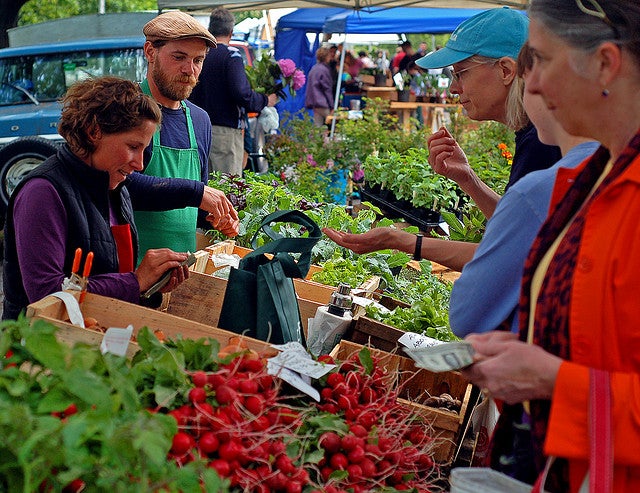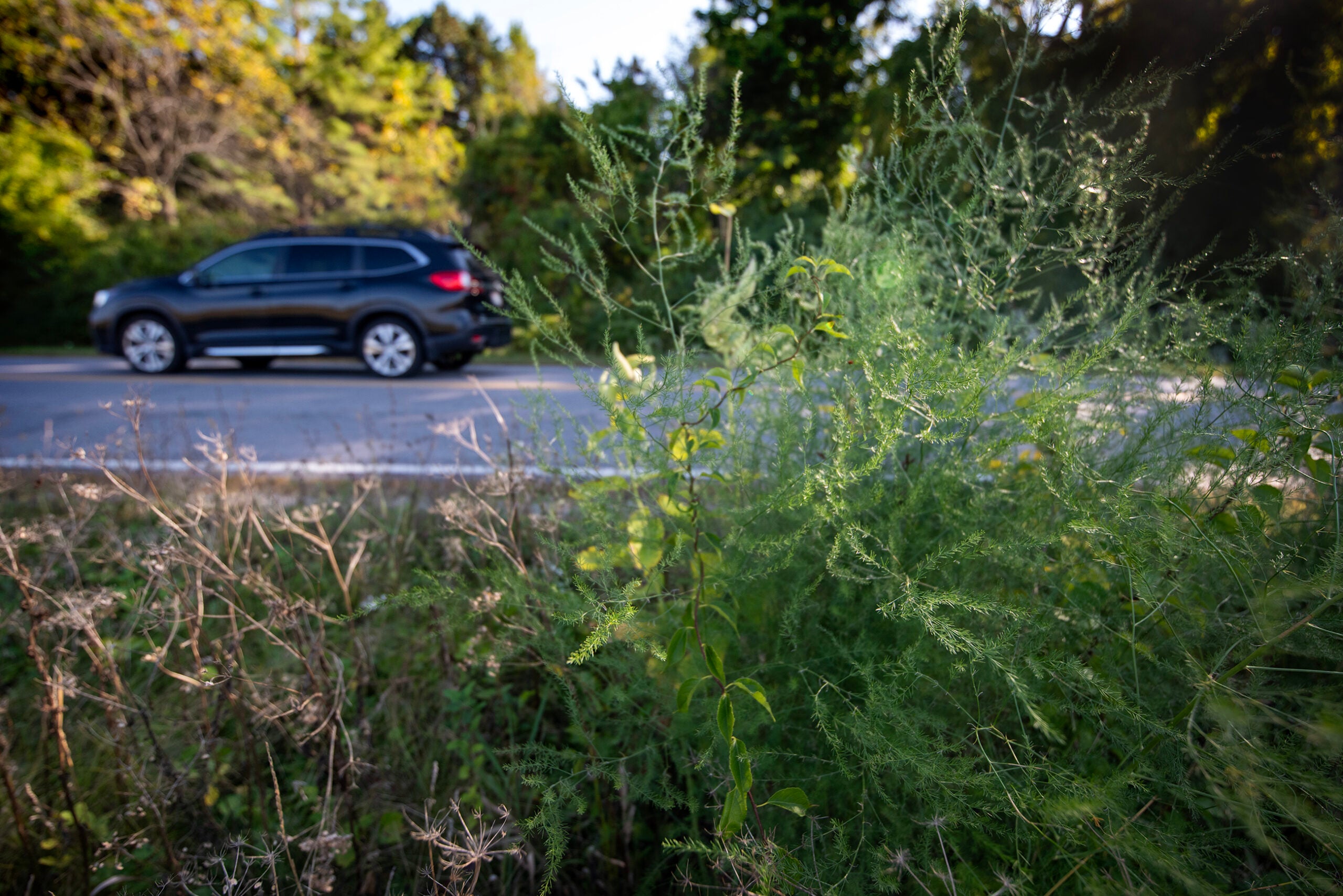Find out how to make money as a small-scale organic farmer from farmer and author Jean-Martin Fortier. His advice will help gardeners of all types as well. [Original broadcast date: January 30, 2015]
Featured in this Show
-
Farmer Shares Tips For Getting Into Small-Scale Organic Farming
A farmer and author of a book about running a small-scale organic farming, said he has has found a way to make a good living on a one and a half acre organic farm.
Jean-Martin Fortier, author of “The Market Gardener: A Successful Grower’s Handbook for Small-scale Organic Farming,” said that no one really believes him when he says he does it without a conventional tractor.
To encourage others who might have thought of this type of farming, he shared a few tips on his success:
Raised beds
Fortier’s farm consists of 180 permanent raised beds. The beds are 100-feet long, 4 to 5 inch mounds of soil without a container around them.
“After every two seasons, they tend to settle down so we need to re-raise them again,” Fortier said, “with shovels or with the rotary plow, a tool that takes the dirt from the aisle and shoots it on to the bed like a shovel would do.”
Broad fork
The broad fork — also known by the French name grelinette — was invented in the 1960s by André Grelin. According to Fortier, it’s an ideal tool to use in permanent raised beds. The end of the tool that works the soil is about 27 inches wide with tines about 10 inches long. With it, the soil can be loosened without turning it, thus keeping the structural integrity of the soil.
Fortier recommends against turning the soil which can unnecessarily bring up weed seeds.
“This tool is designed for deep tillage, but in a very gentle way. We thought it was very symbolic of what ecological farming is and that’s why we call our farm ‘The Broad Fork Farm,’” he said.
Walking tractor
Fortier wants to have every square foot of his farm be productive.
“A (conventional) tractor eats up so much space just to turn at the end of the row,” he said.
The walking tractor or two-wheeled-tractor has a much smaller footprint. It also allows for different equipment such as plows, harrows and tillers to be attached.
“They are really tailor made for small scale organic farming,” he added.
Flame weeder
The flame weeder removes a 30 inch swath of weeds at once. Fortier has found that it is particularly effective when used right before the crop comes up from the soil leaving a clear space for the crop to grow and eliminating the need to weed on one’s hands and knees.
Try it out first
Fortier’s final piece of advice for those wanting to get into small-scale farming is “to spend at least one full season on someone else’s farm because farming might be a dream for some people, but farming is hard work and you need to know if you are cut out for the job.”
Episode Credits
- Larry Meiller Host
- Judith Siers-Poisson Producer
- Jean-Martin Fortier Guest
Wisconsin Public Radio, © Copyright 2025, Board of Regents of the University of Wisconsin System and Wisconsin Educational Communications Board.


